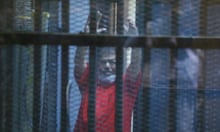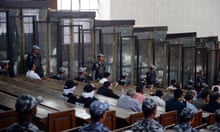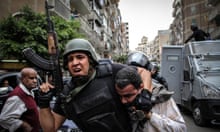Egypt’s Supreme Judicial Council has forced 32 judges into retirement for having opposed the army’s removal of Islamist president Mohamed Morsi in 2013.
Morsi was deposed by army chief Abdel Fattah al-Sisi, who went on to become president, and since then the authorities have cracked down on all forms of dissent, including secularists and liberals.
“Today, the Supreme Judicial Council took a decision to force 32 judges into retirement for intervening in politics and supporting a certain party” after the removal of Morsi, a senior official from the council said on Monday.
Last week the council had taken similar action against 15 other judges for the same reason.
These judges have been suspended since March 2015 after a lower panel of the council ordered they be sent into retirement. On Monday the council upheld that order.
The judges had refused to recognise the legality of the coup against Morsi, Egypt’s first freely elected president.
The council official said that some of the judges had openly declared their opposition to his removal at the time in a signed statement at Cairo’s Rabaa al-Adawiya Square.
Thousands of pro-Morsi supporters had demonstrated at the square for weeks demanding he be reinstated.
On August 14, 2013 police stormed the square to disperse the sit-in.
About 700 people were killed within hours at Rabaa al-Adawiya and the capital’s Nahda Square where another similar sit-in was being held.
Hundreds more were killed in street clashes with police over several months after the 14 August carnage.
Global rights groups Amnesty International and Human Rights Watch say that at least 40,000 people were arrested within the first year of Morsi’s removal on 3 July, 2013.
Hundreds more have been sentenced to death or lengthy jail terms after speedy mass trials, including Morsi and several leaders of his outlawed Muslim Brotherhood movement.
The International Commission for Jurists urged Egypt to reverse the decision concerning the judges.
“The intensity of Egypt’s attacks against individual judges is reaching a frightening level,” said Said Benarbia, Middle East and North Africa director at ICJ.
He said the move sends a “chilling message to others who might challenge the ongoing crackdown on fundamental rights and freedoms in Egypt”.









